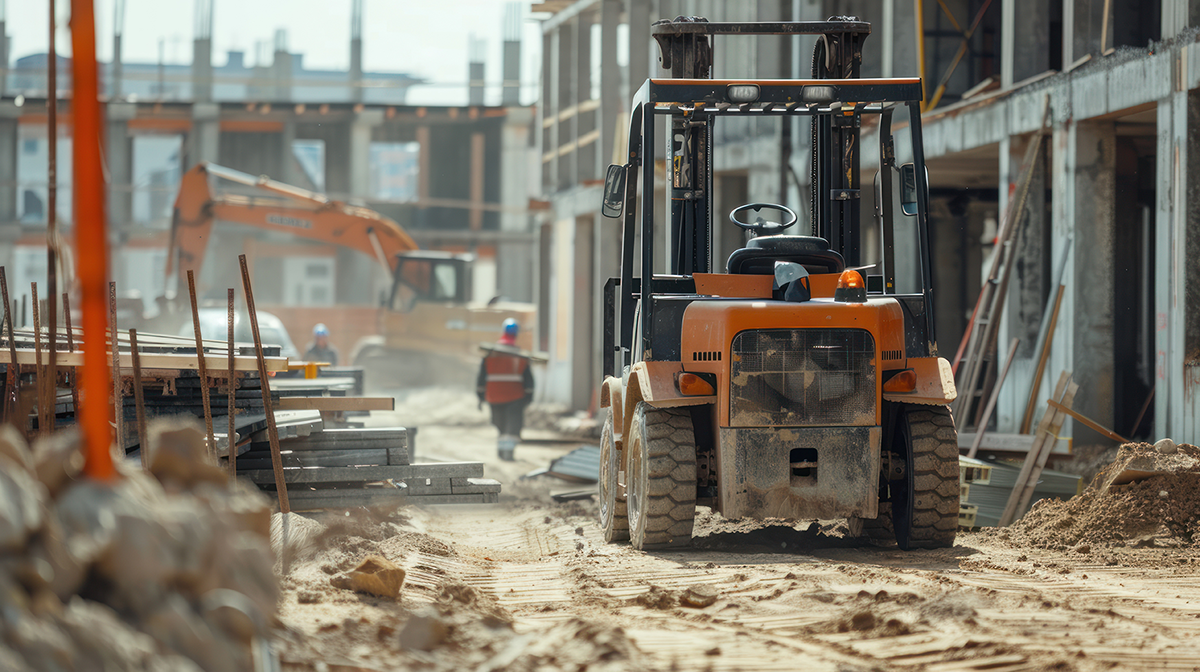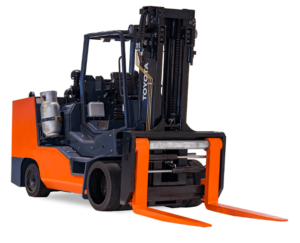Regarding forklift operations on construction sites, not all lifts are created equal. Rough terrain forklifts are built for heavy-duty performance in outdoor environments, but with that power comes increased responsibility. Employers must ensure their operators receive training that reflects the unique hazards of uneven ground, weather exposure, high-capacity lifting, and training on how to read and understand a lift chart.
Why It Matters
Rough terrain forklifts are commonly used in job sites for their ability to handle heavy loads across dirt, gravel, and unstable surfaces. But these machines introduce risks that standard warehouse forklifts do not pose, and Occupational Safety and Health Administration (OSHA) compliant training is essential.
Operators must be certified specifically in the rough terrain class (Class VII) of forklifts, as their handling, stability, and usage environments are significantly different from standard sit-down or stand-up forklifts.
To understand how this fits into a complete forklift safety program, see our Complete Guide to Forklift Safety Training in Florida.
What Is a Rough Terrain Forklift?
Rough terrain forklifts, also known as all-terrain forklifts, are designed with oversized tires, high ground clearance, and heavy-duty frames to handle outdoor and uneven job sites. These machines are common in construction, lumberyards, and agricultural environments.
Key Features:
- Pneumatic tires with deep treads for traction.
- 2WD (Two-Wheel Drive) or 4WD (Four-Wheel Drive) options for better mobility on rough ground.
- Telescopic boom or straight mast options.
- Intended for lifting heavy weights on unstable surfaces.
Training Focus Areas for Rough Terrain Forklifts
To stay compliant and reduce liability, employers must provide job-specific, hands-on training tailored to rough terrain equipment and worksite conditions.
Training should include:
- Understanding load capacity on uneven surfaces
- Safe operation on slopes, mud, gravel, and inclines
- Boom extension safety and tip-over prevention
- Pre-use inspection procedures for outdoor wear-and-tear
- Weather-related risks, such as wind and rain exposure
- Pedestrian awareness and limited visibility on job sites.
- Emergency procedures in case of rollovers or mechanical failure
Operators must also demonstrate proficiency through a performance evaluation using the actual equipment and worksite conditions.
Florida Employers: OSHA Compliance is Location-Specific
According to OSHA standards, training must be specific to both the type of equipment and the conditions in which it will be used. This means a rough terrain forklift operator working in Jacksonville may need different practical instruction than one working at a Miami beachfront job site or an Orlando high-rise.
Forklift Safety Training Florida, we offer on-site training statewide, delivered by experienced instructors who understand the variable demands of Florida’s construction environments.
We Train for Real Job Sites
Whether you’re running a residential build, a commercial development, or managing subcontractors across multiple projects, we tailor each training session to your job site, equipment, and crew.
- Bilingual instruction available
- Hands-on evaluations at your location
- Following OSHA and American National Standards Institute (ANSI) regulations
- Group sessions for multiple operators are available.
Keep Your Team Safe, Compliant, and Certified
Don’t leave safety to chance. Rough terrain forklifts require specific training that’s practical, focused, and built for the real-world challenges your operators face every day.
Prepared to arrange for workplace training at your Florida location? Schedule Training Now
We provide on-site forklift training across Florida. Check our service areas.



